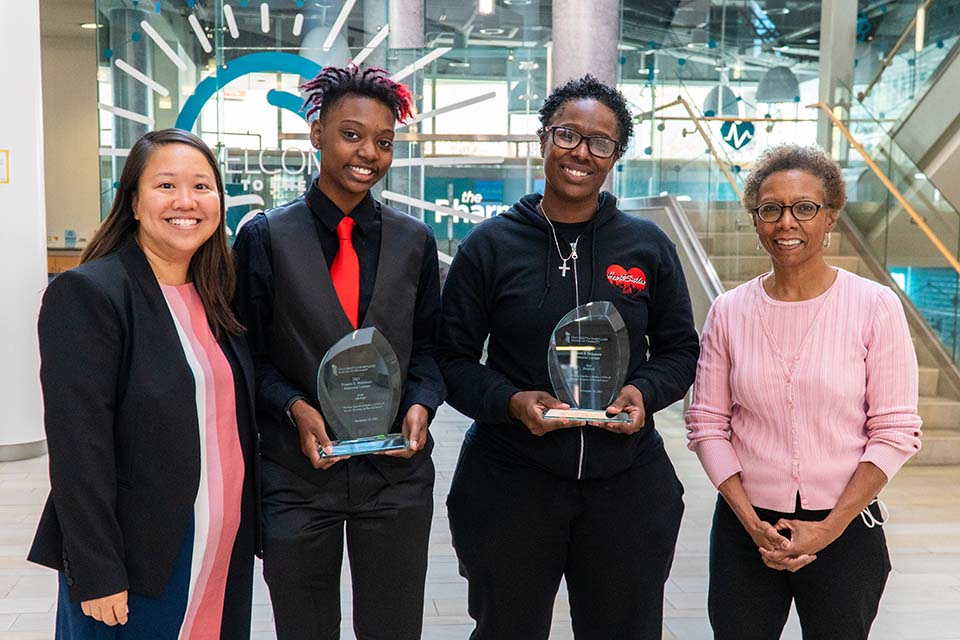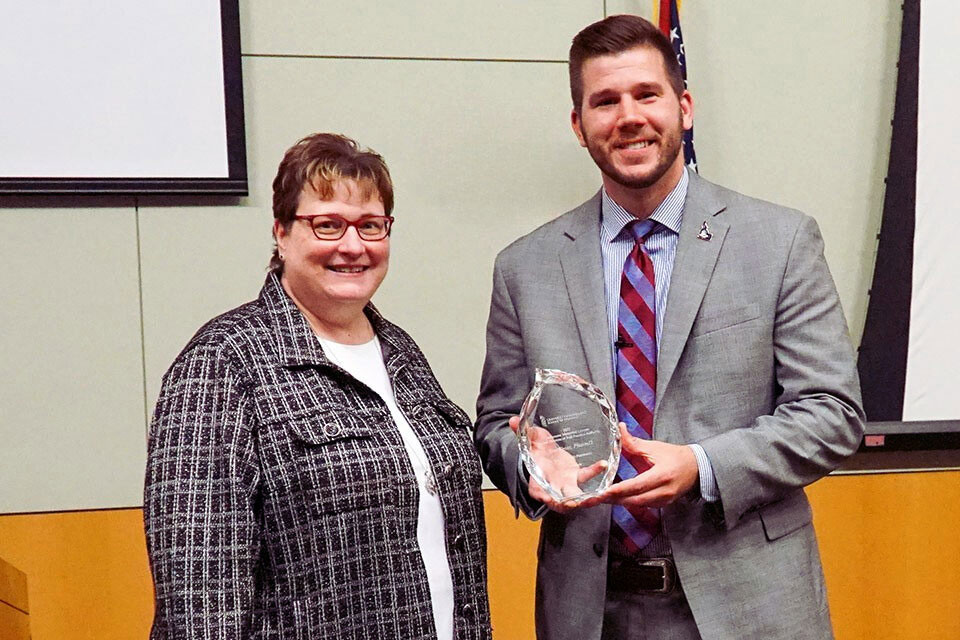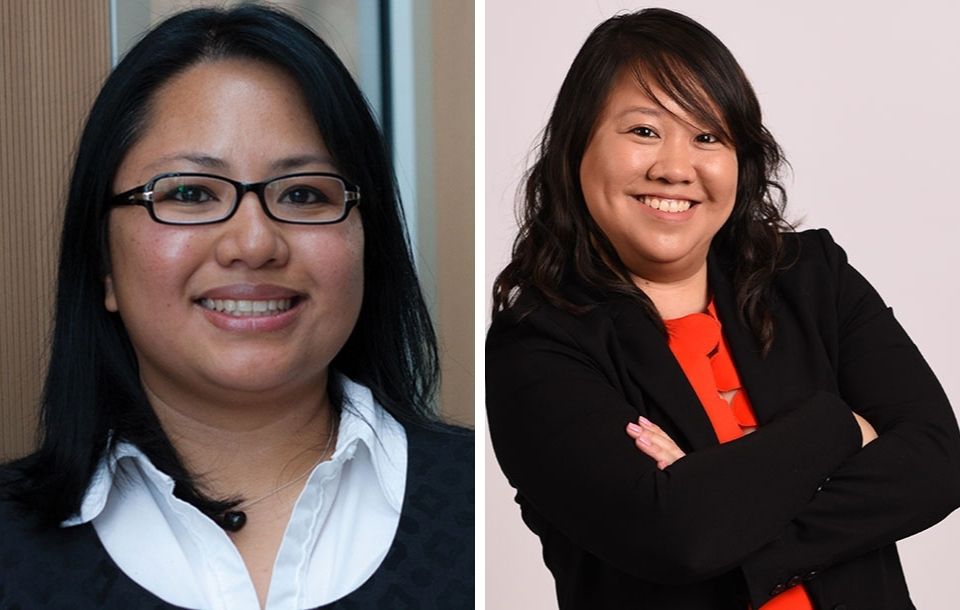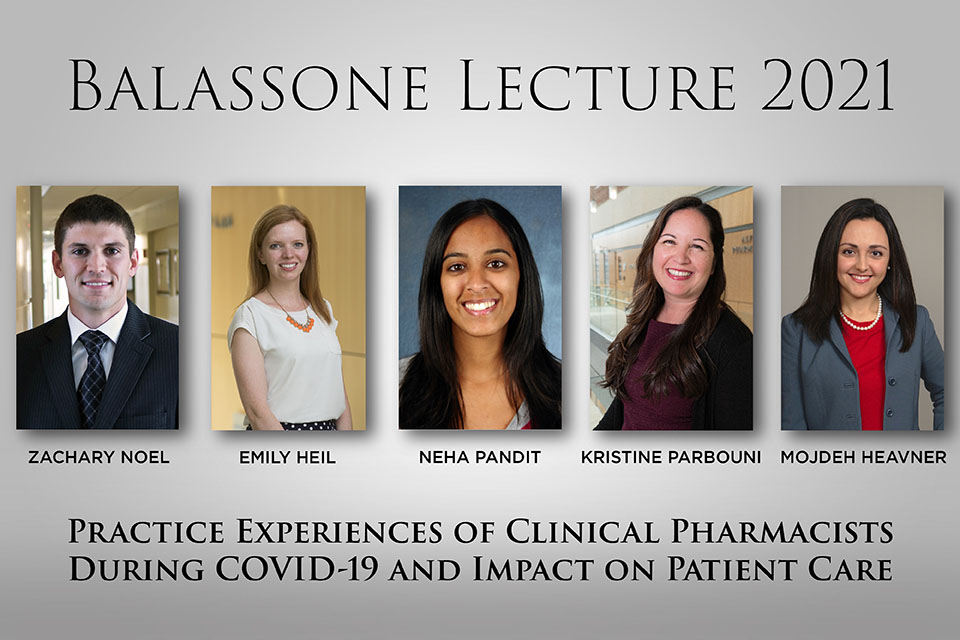Balassone Memorial Lecture Focuses on COVID-19 Vaccine Hesitancy
Documentary showing and panel discussion with community activists are highlight of annual endowed lecture

By Becky Ceraul
November 23, 2021
The development and global deployment of COVID-19 vaccines have been touted as the best way for the world to emerge from the ongoing pandemic. Millions of people around the world have been vaccinated, but many haven’t for a variety of reasons. The University of Maryland School of Pharmacy’s annual Francis S. Balassone Memorial Lecture on Nov. 10 sought to help faculty, staff, students, and other attendees understand and address COVID-19 vaccine hesitancy.
The lecture – held in Pharmacy Hall with a virtual option – began with a showing of the documentary Vaccination from the Misinformation Virus. The PBS film focuses on the influence of social media in creating biases against vaccines. It seeks to overcome those biases and help viewers understand why vaccines are safe, crucial to community health, and save millions of lives annually.
The documentary showing was followed by a panel discussion with two community advocates: Joni Holifield, founder of the grassroots organization Heart Smiles, and Ania McNair, who runs the non-profit Not for Sale Youth. They were invited to the lecture by Deanna Tran, PharmD, an associate professor of pharmacy practice and science who is one of three pharmacists serving on Maryland’s COVID-19 Vaccination Technical Advisory Group, whose role is to ensure the equitable distribution of the vaccine across the state. She is active in providing immunizations to patients in her current practice site and assisting in flu and COVID-19 vaccination clinics, as well as educating and training pharmacists and student pharmacists on the American Pharmacists Association Immunization Certificate program.
“It’s important for the School of Pharmacy community to hear about the barriers to vaccination,” said Tran. “Through the Balassone Lecture, I wanted to continue to build connections to the community that many of our pharmacists and students serve.”
Holifield shared that while COVID is a real threat, in many communities, it is an abstraction that takes a backseat to more urgent daily concerns.
“In the communities where I humbly serve and where I’m from, people are more worried about getting shot then they are about getting the shot,” said Holifield. “Before we can even think about a virus that may never affect us in a way that can be physically felt, we first have to be sure that we can just pay the rent this month and that we won’t be the next family that goes from living next to a vacant house to living inside a vacant home.”
Holifield also explained that barriers such as a lack of trust, knowledge, and priorities like food and housing make the pandemic seem irrelevant.
“I’m vaccinated for the example that it sets because I’m fully aware of my credibility and influence in the community,” Holifield said. “However, I wasn’t the first in line to get the vaccine. Like many in our community, I had lots of questions. Thank God I had access to some of the brilliant minds working on the global strategies to beat COVID. I was able to get answers for myself and others.”
Holifield concluded her remarks by encouraging attendees to meet others wherever they are in the decision-making process. “Everyone deserves your respect regardless of where they are in life and regardless of their views concerning the vaccine,” she said. “Be someone the community can trust. Be someone who personifies what it means to care, to be empathetic, to be patient as people learn and explore what the vaccine means for them and their family.”
“Taking the vaccine is a choice,” said McNair, who works with youth experiencing trauma. “Some people have concerns about how you can still get COVID even with the vaccine. Be transparent about how it is new and scary and that it can help you, but that it isn’t a 100 percent guarantee that you still won’t get COVID. Keep your ears and hearts open.”
“Listening to what Joni and Ania are saying helps with understanding,” said Tran. “I hope that attendees gathered insights into our community members in the West Baltimore area, learned the importance of being empathetic when talking to people about vaccines, and are inspired to advocate for vaccines in whatever way they can.”
When asked by Tran what pharmacists can do to help encourage vaccine acceptance, both panelists mention relationships. “Building small little links helps. Build a relationship with even one person,” says Holifield.



